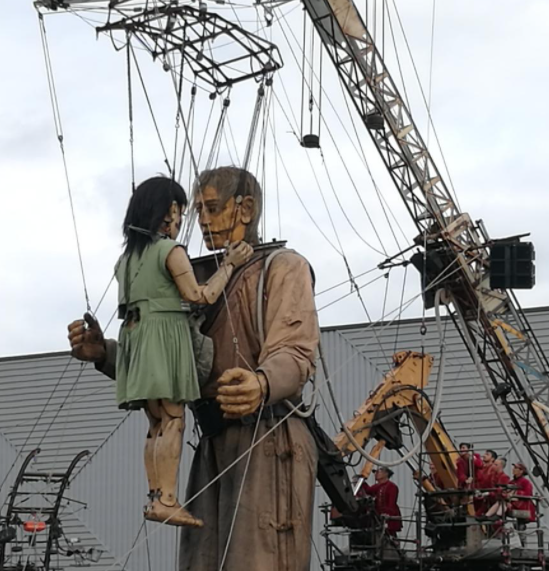
We receive the world we live in from the previous generation. We do something with it in our own time. We pass on this new world to the next generation. – That insight has been lost. We live in our own time. In our own world or our own bubble, as it is called nowadays. Therefore, it is no surprise that climate change is knocking at our door and calling for a change in our way of making a living.
A continuous present
We live in a continuous present. We are no longer connected to multiple times. The farmer and the shoemaker used to have to work on the transfer of their profession themselves. They employed and taught people who took over the trade. They spent perhaps a third of their time doing so. That gives a completely different sense of reality. You know much better that there will be a time after you. We have lost sight of that.
An organization benefits most if you do one thing without ambiguity, efficiently and repeatedly.
The fact that we have lost that insight is not only due to one-sided education. This one-sided education itself is caused by a one-sided way of life. The core of this is a one-sided way of working and earning a living. Most people work in large organizations and are deployed on some sub-process. They continuously do so, if possible throughout their career. It is no longer part of the work that you also think about and work on changing the content of the work itself. An organization benefits most if you do one thing without ambiguity, efficiently and repeatedly. At least that works in the short term. In the short term, this provides the most efficiency, and therefore generates the most revenue. In the long run it is always a problem, of course, because if you have only learned one trick, then what about your ability to learn new tricks?
Dwarves and giants
As a result, modern organizations are producing spiritual dwarfs. They are very good at one thing, but they can no longer think outside or beyond it. Of course, changing and learning always hurts, but if one dares to do so, it brings gross. In the organization in which I work, the TU Delft, satisfaction surveys are occasionally conducted, as is the case with many others. That fits well with this existence of dwarfs: you have to keep them short, but also satisfied. Such little people live in their work like cogs in the machine and in their spare time they are allowed to create their own bubble.
They are very good at one thing, but they can no longer think outside or beyond it.
The managers in such organizations try to achieve the greatest possible efficiency and pull the strings of the people to this end. If you want to be successful, you have to go with the trend and get as much out of it as possible so that the organization grows, and with that the prestige of your position grows, possibly also your income and influence. An organization that thinks in the short term thus creates spiritual dwarfs on the one hand and clumsy giants on the other. Giants are always clumsy because they don’t see where to put their feet. They don’t know what they exist for. They know of success, but not of succession.
Living in generations and sustainability
If an organization has to change, if a new world of institutions and practices has to be created for the time after us, this continuous present no longer works. In a world of dwarfs and giants, the human dimension is lost. It is typical that such a term now suddenly becomes part of the social debate: the human dimension.
What should the world of the next generation look like? What should we do so create? Nobody knows in detail. Managers should therefore become leaders. That is to say, they must take the lead in a process of change. That makes them smaller than they were. Because one cannot lead if one cannot listen. After all, you don’t know how to do it yourself. We all make an attempt. But that also means that all employees become more than just employed. The change must take place at all levels and it is a challenge for everyone to find a way which does not yet exist. That requires a lot of mutual discussion and communication. That makes the employees bigger.
After all, you don’t know how to do it yourself. We all make an attempt.
Such talk and speech between management and employees is an absolute necessity. That also takes time. And so in the short term the least efficient is what yields the most in the long term. Not only does it deliver better results in the long run. But only those people really grow who also make sacrifices and make an effort to transcend themselves. That demands that we live in a larger time perspective. This requires that we can draw on a broader repertoire of values and words by which we interact with each other. That requires us to ask more explicitly the question: what should we inherit and where should we go? Responsible people desire less to get confirmation within their own bubble. Instead they want to test their self-evident views in order to make progress.
In short, no sustainable world if people are not prepared for the long term.